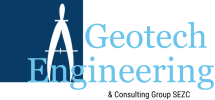Enterprise Resource Planning
What We Do
Internal Unified Control
Geotech Engineering’s Enterprise Resource Planning (ERP) is a program that automates business procedures and internal controls, drawing on a central database that assembles inputs including accounting, manufacturing, supply chain, sales, and human resources (HR).
Once data is compiled in the central database, leaders acquire cross-departmental visibility, creating opportunities to uncover process improvements and generate major efficiency gains. This creates cost savings and better productivity as people spend less time hunting for needed information. In summary, Geotech Engineering’s ERP program helps companies gain clear visibility and control of their business, that in turn unifies people, processes, and technology across an organization.
Specifications
Geotech Engineering's ERP Popular Features
Order Management
Geotech Engineering’s ERP order management capabilities help streamline order processing by establishing a smooth flow from sales quote to order fulfillment. Geotech Engineering’s ERP order and billing management features incorporate your sales, finance and fulfillment teams—providing quote accuracy, erasing billing errors, improving revenue recognition processes and creating fulfillment accuracy and efficiency.
Warehouse and Fulfillment
Geotech Engineering’s ERP WMS solution enables organizations to optimally manage their reporting requirements with real time inventory updates and integration with shipping systems.
Financial Planning
Geotech Engineering’s ERP Planning and Budgeting automates intensive planning and budgeting procedures and centralizes company financial and functioning data, so finance teams can increase efficiency and effortlessly produce budgets and create reports within one collaborative scalable solution. Finance teams are able to gain the needed control, collaboration, and visibility to their organizations financial and operational plans.
Employee Management
Geotech Engineering’s ERP employee management capabilities provide real-time visibility into every step of the production process to help you make better-informed decisions.
Procurement
Geotech Engineering’s ERP procurement solution helps companies buy goods and services at the best cost and saves employees’ valuable time with easy-to-use capabilities, reducing costs by channeling purchases to approved suppliers and pre-negotiated contracts, and improving visibility by rendering real-time information into company spend and vendor performance.
Financial Management
Geotech Engineering’s ERP financial management solution combines robust financial management with built-in business intelligence to drive smarter, quicker decision-making. Our cloud-based single platform architecture ensures complete real-time visibility into the financial performance of the business from a consolidated level down to the individual transactions.

The secret is in getting the solution to work for you, not the other way around. Let us help you achieve this.
F.A.Q.
Below you’ll find answers to the questions we get asked the most
about Geotech Engineering’s ERP system:
ERP stands for enterprise resource planning, this refers to a business management platform enterprises that people have begun using since 1990.
An ERP is a software businesses count on to run and monitor the performance of daily operations. It manages and stores information across the company, this includes anything from finance to supply chain, to human resources, in a central repository and can analyze and report on all of that data.
An ERP is an application that creates use of a crucial database that accepts information from numerous departments within a business. The ERP incorporates integrated units dedicated to roles like accounting, inventory management and CRM. An ERP offers companies a sole place to keep, view, manage and interpret data.
While financial management and accounting are key ERP roles, the system’s capabilities reach far past this division. The ERP can automate and improve managed jobs connected to purchasing, inventory and order management, creating project management, workforce management, sales and marketing and much more.
ERP software has evolved into an invaluable device for companies due to the fact that it creates major time and price savings. Besides automating jobs, an ERP offers company-wide sight and reporting that shows executives and supervisors where teams could focus their energy and attention, which may mean recognizing pressing problems.
An MRP, or material resources planning, structure was a forerunner to ERP used by manufacturers to improve and prepare for production races. The manufacturing-related jobs MRP systems managed, like procurement and inventory tracing, are just one fraction of today’s current ERP systems.
Two-tier ERP is an option that has received traction among growing companies with subsidiaries, or specific business offices. Instead of merging these business units or offices to use the legacy ERP, they operate on a less-resource-intensive ERP—often a SaaS solution—that’s merged with the Tier 1 system.
Majority of the advantages of cloud ERP filter under cost efficiencies and fewer management headaches. A cloud solution is typically cheaper and quicker to implement, and post-implementation costs could be lower due to the vendor taking care of most maintenance and updates. A cloud-based solution can also easily support your development, as the vendor takes care of all hardware.
